As the world loses the last links to D-Day, vets recount the fateful hours on Normandy's beaches
BÉNOUVILLE, France — The anniversary of D-Day is celebrated annually with solemn ceremonies and grand re-enactments. But this year — the hugely symbolic 80th anniversary since that day of days — it may be the last major milestone for many veterans to recount in their own words the sheer brutality of that pivotal battle.
Around 200 veterans attended this year’s event, the youngest in their 90s and some over 100. And an unavoidable truth, mostly unspoken this week across Normandy, is that the next five-year anniversary will almost certainly look very different.

Relatively soon, there won’t be so many stories like that of Richard “Dick” Rung, now 99, of Carol Stream, Illinois, who served that day as a motor machinist mate second class.
His landing craft ferried troops to Omaha Beach, its hull soon soaked with the bloodied bodies of those scythed down by the German machine guns, mortars and artillery. It was Rung’s job to wash off the blood with a firehose.
“It was raining death,” he told NBC News at a ceremony Wednesday honoring veterans at Pegasus Bridge, a site captured by the Allies early on in the epic air, sea and land attack that helped turn the tide of World War II and defeat Nazi Germany. “I heard someone saying over the radio, ‘We are being slaughtered like hogs’ — and it’s true, we were.”
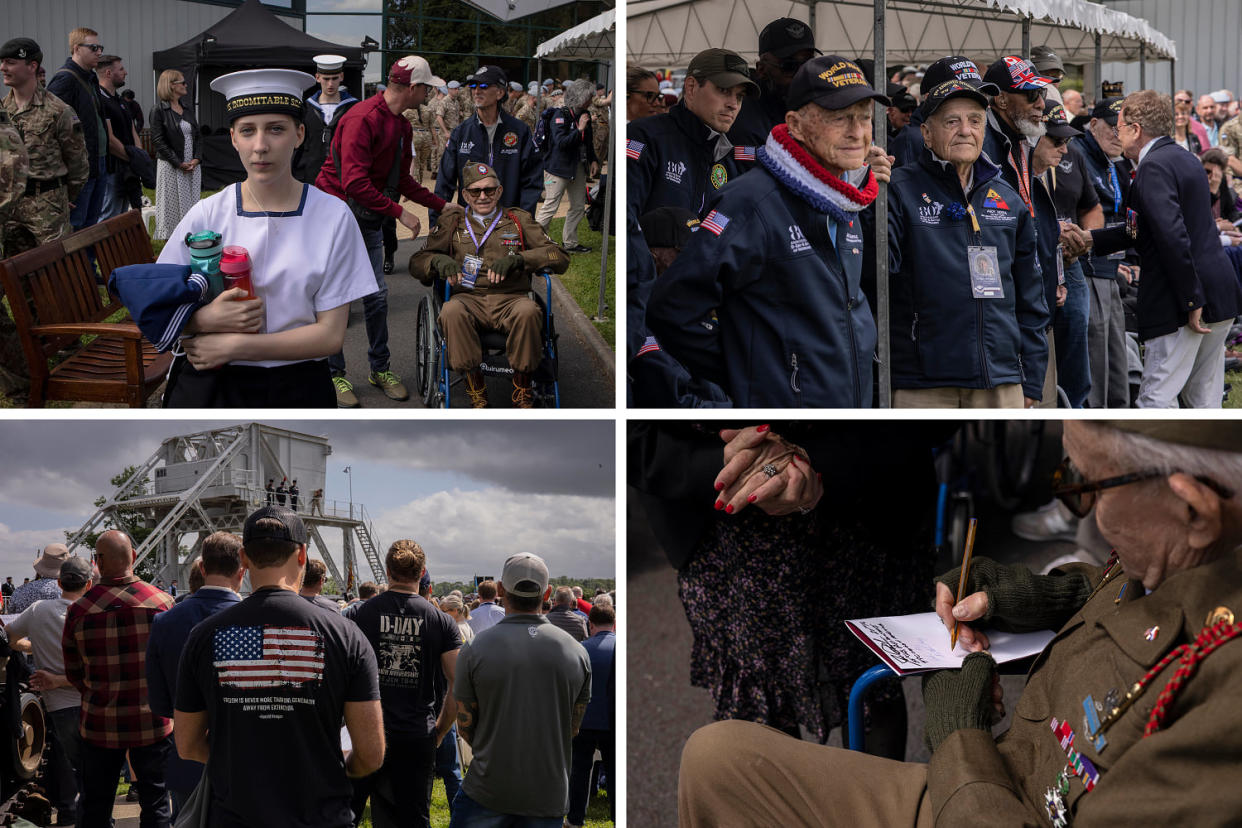
In his speech at the American Cemetery in Normandy on Thursday, President Joe Biden referenced the years soon to come, when the story of D-Day will be told by recorded testimony rather than the living words of its survivors.
“We cannot let what happened here be lost in the silence of the years to come. We must remember it, must honor it and live it,” he said. “We must remember: The fact that they were heroes here that day does not absolve us of what we have to do today.”
Drawing direct parallels with Ukraine’s fight against Russia and a contrast with his domestic rival, former President Donald Trump, he added: “Democracy is never guaranteed. Every generation must preserve it, defend it and fight for it.”
“Let us be worthy of their sacrifice.”
Biden gave his speech alongside his French counterpart, Emmanuel Macron, at the cemetery in Colleville-sur-Mer. Afterward the pair joined Germany’s Olaf Scholz, Britain’s Prince William and Ukraine’s Volodymyr Zelenskyy, who were among some 25 world leaders and heads of state at the international ceremony on Omaha Beach to commemorate the 150,000-plus troops who fought on D-Day.
With war raging in Ukraine, Russians, who were part of the Allied forces that defeated the German-led Axis powers, have not been invited to any of the events.
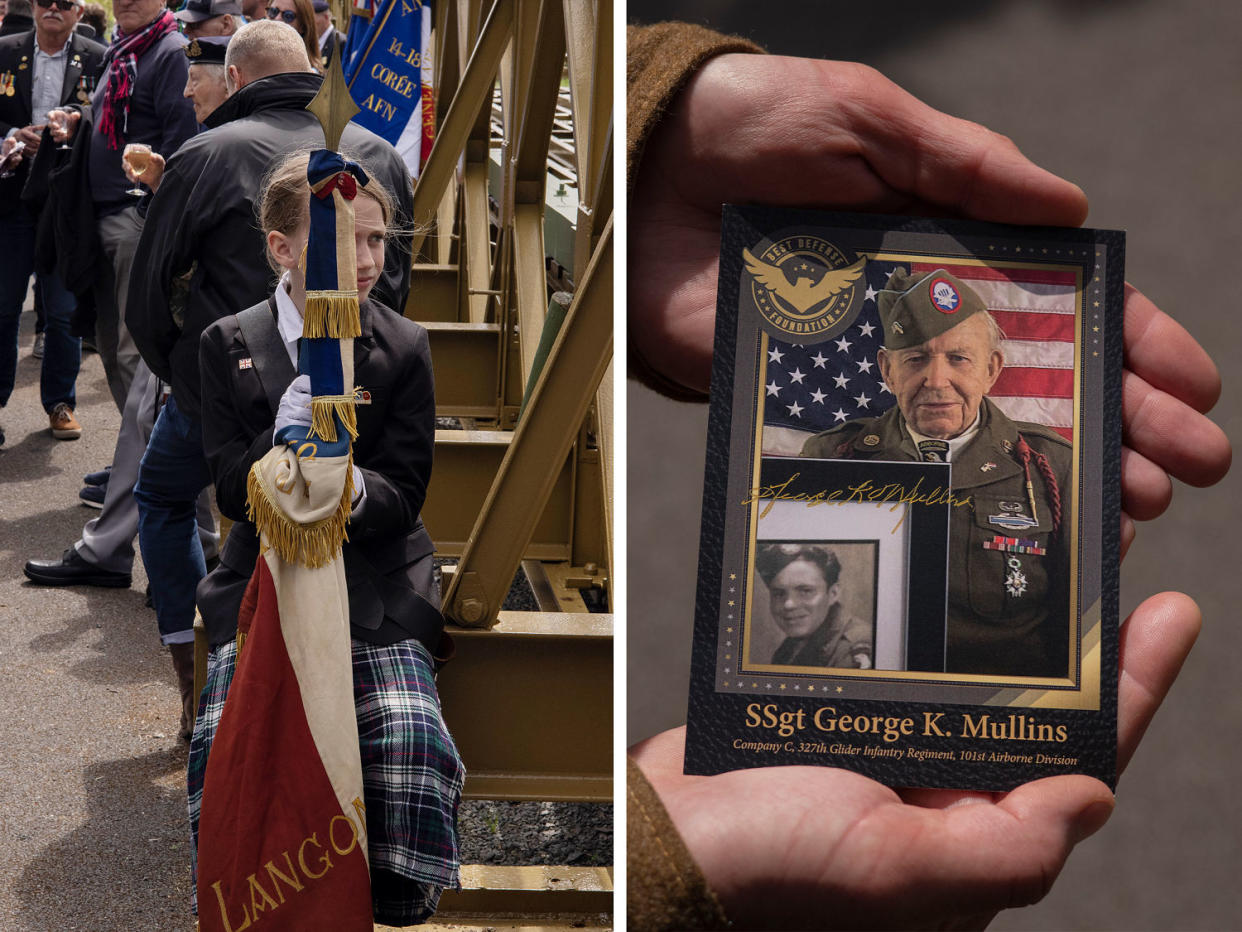
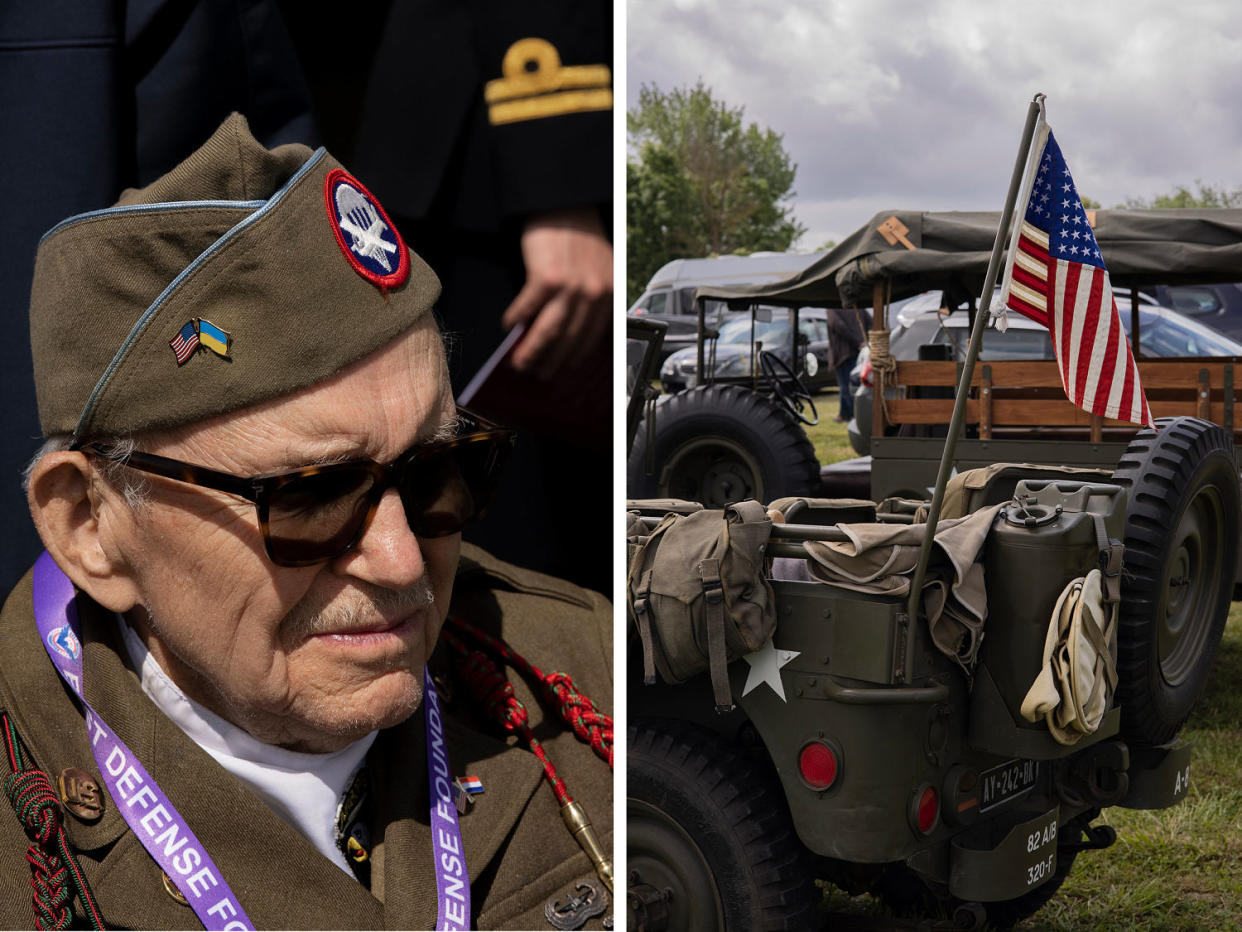
With firsthand testimony a fading commodity, NBC News was given access to spend the week traveling around Normandy with several busloads of these veterans. They were brought over from the United States by the Best Defense Foundation, a California-based charity.
Driving through the small fields, narrow roads and high hedgerows of this corner of northwest France, it’s impossible not to imagine the terror so many felt as they fought through this dense “bocage” terrain, as it’s known, where death could come in an instant.
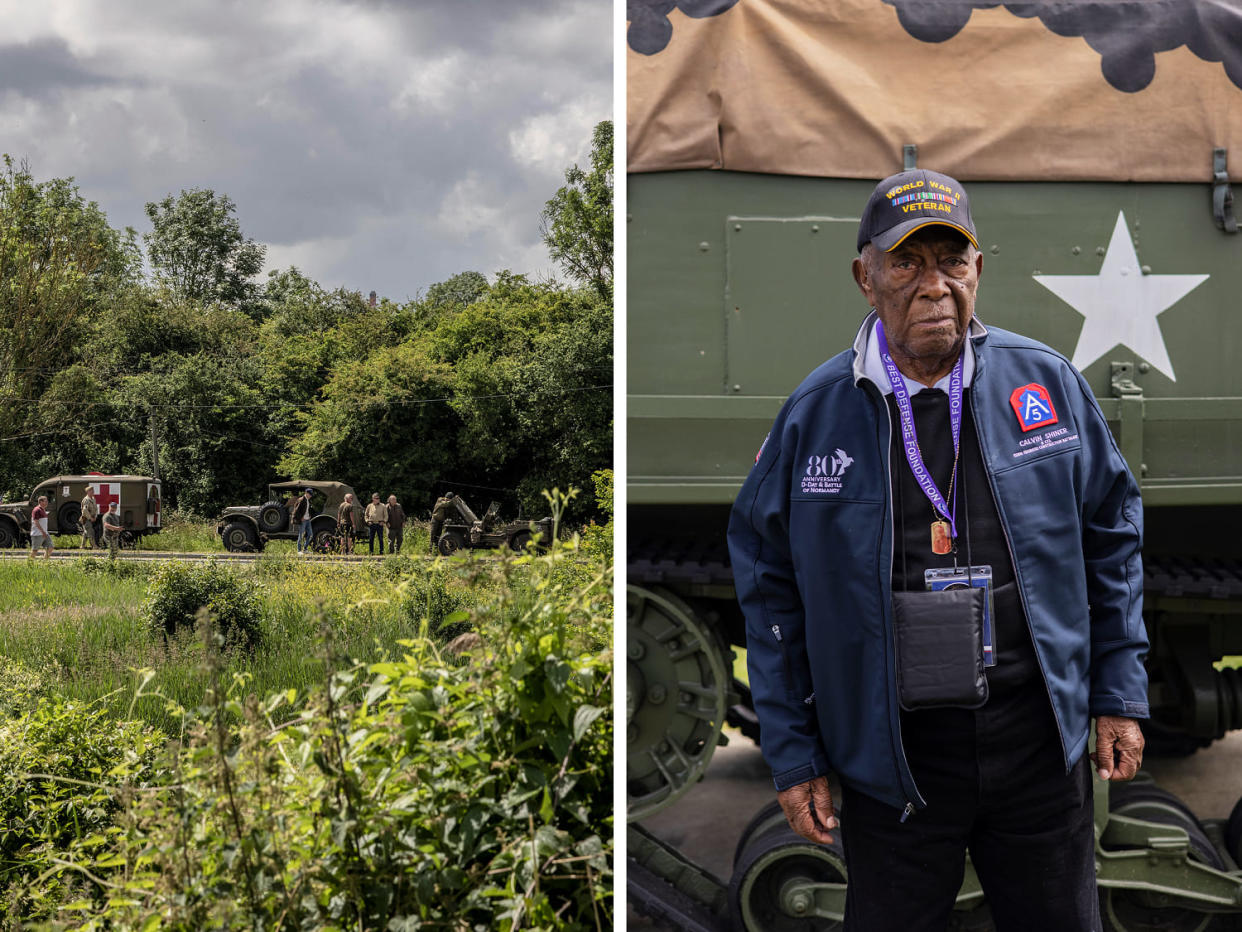
The value of their testimony is by no means purely sentimental.
Right now the veterans own their words; after they are gone, it will be up to others to retell them — perhaps more easily alongside their own political interpretation if the original authors are no longer around.
Among their most remarkable is Gideon Kantor.
Born in Vienna in 1925, he fled Europe for America as a 16-year-old Jewish refugee after Adolf Hitler took power in his homeland. Some 30 members of his family were not so lucky, killed amid the persecution and murder of Jews committed by the Third Reich.
Kantor could have deferred his draft while still at college, but felt compelled to return to Europe to oust the fascists who had slain his relatives and expelled him from his home.
“I was so eager to do exactly what I considered my duties,” Kantor, still lucid at 99, said. He described his remarkable story in a striking, matter-of-fact fashion, nursing a glass of white wine while sitting in his wheelchair in the Normandy sun.
He was initially drafted to Fort Bragg, in North Carolina, but because he spoke German and French, he was quickly identified and sent to Camp Ritchie, in Maryland. There he became one of the famed “Ritchie Boys” — along with many other Jewish refugees — whose language skills and knowledge of European culture were utilized by military intelligence for use in interrogations.
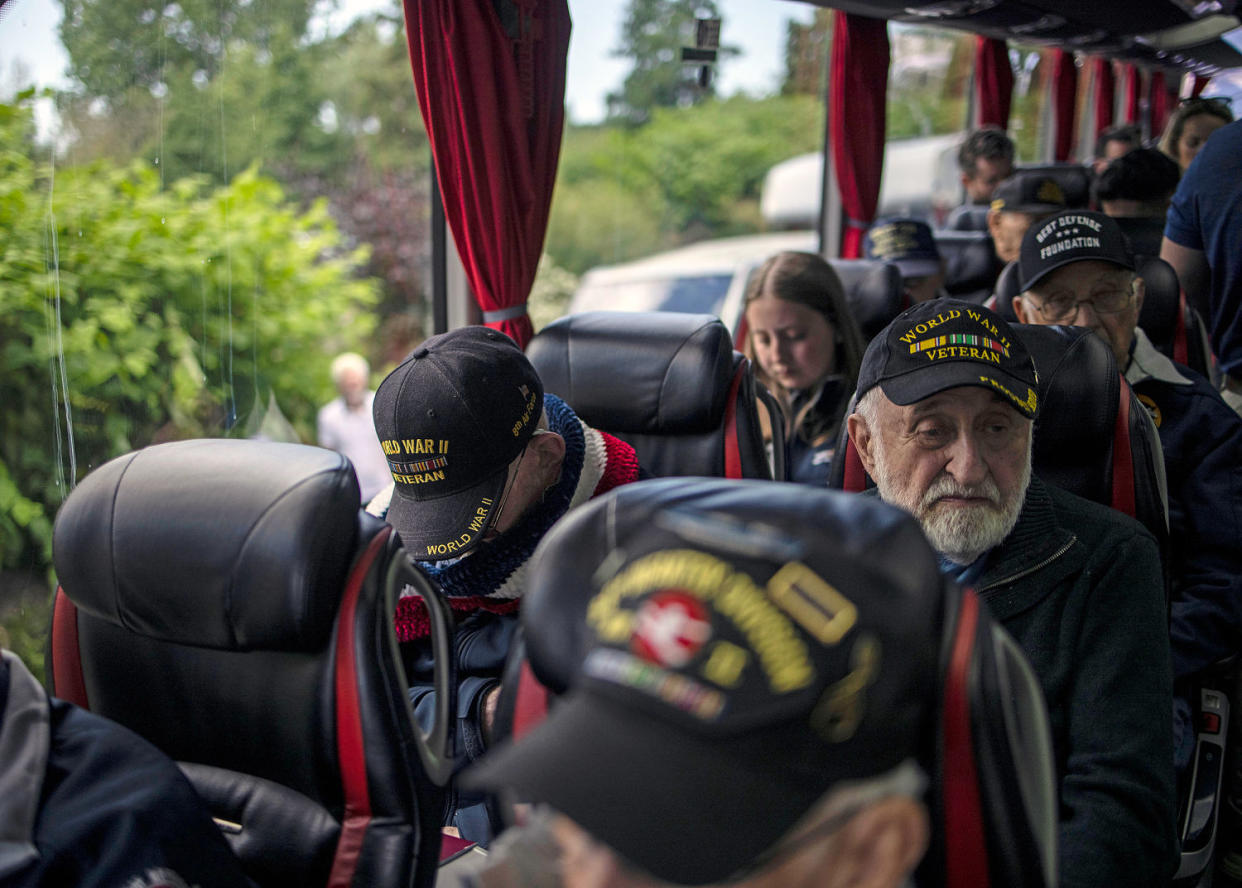
Of the 20,000 Ritchie Boys, only a handful remain.
His personal retelling preserves the nuances that might otherwise be lost once these stories fade from living memory. Kantor says the American troops, while fighting for a just cause, were no saints.
“I was in a truck company, and they wouldn’t spell out antisemitism as such but they would say ‘New York City’ with the clear implication that it was a Jewish town,” he said.
But never did he lose sight of the bigger picture.
“I lived through the Hitler times in 1938,” Kantor said, referring to the fuhrer’s “Anschluss” annexation of Austria that year. “You see what a dictator can do, and unless you believe in democracy passionately, you can see what can happen,” he explained, adding with striking understatement, “It’s quite frightening.”
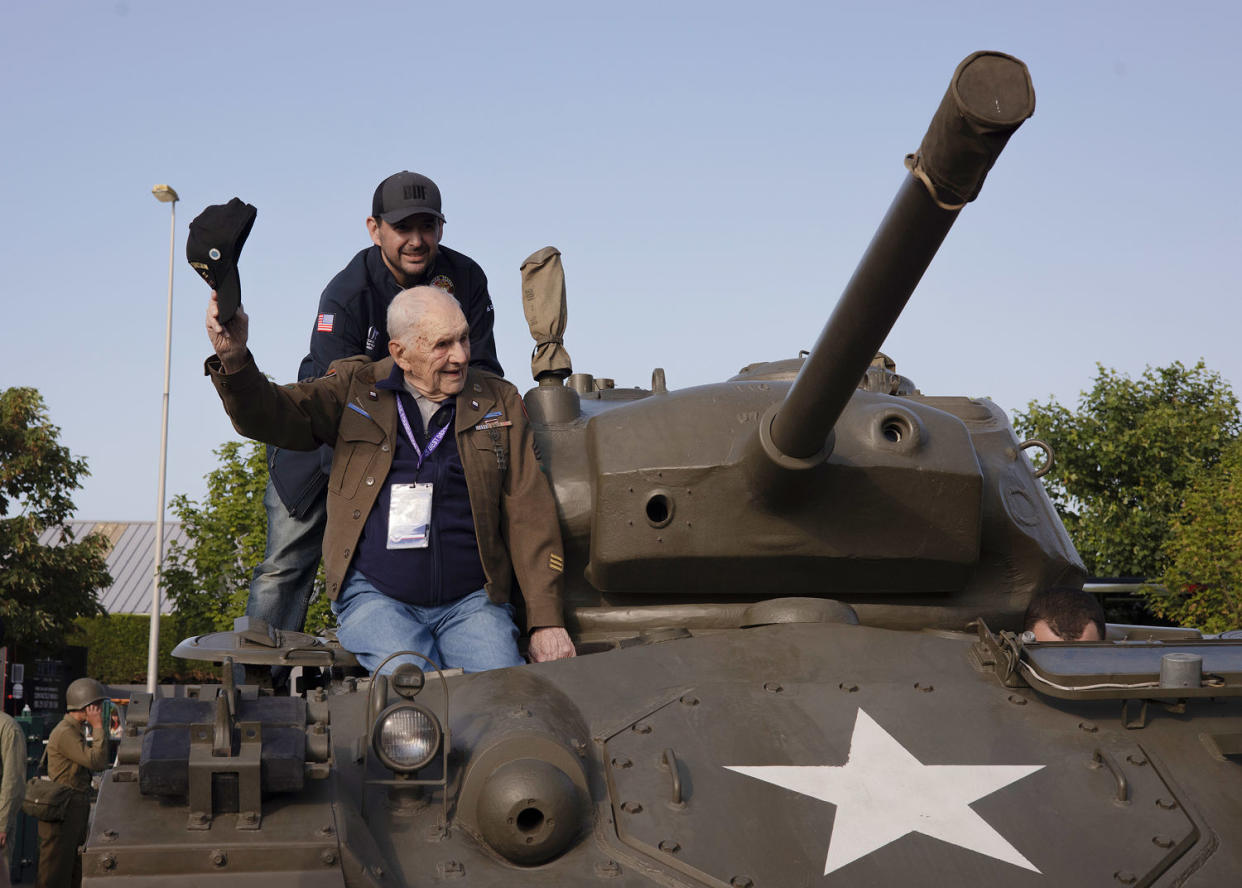
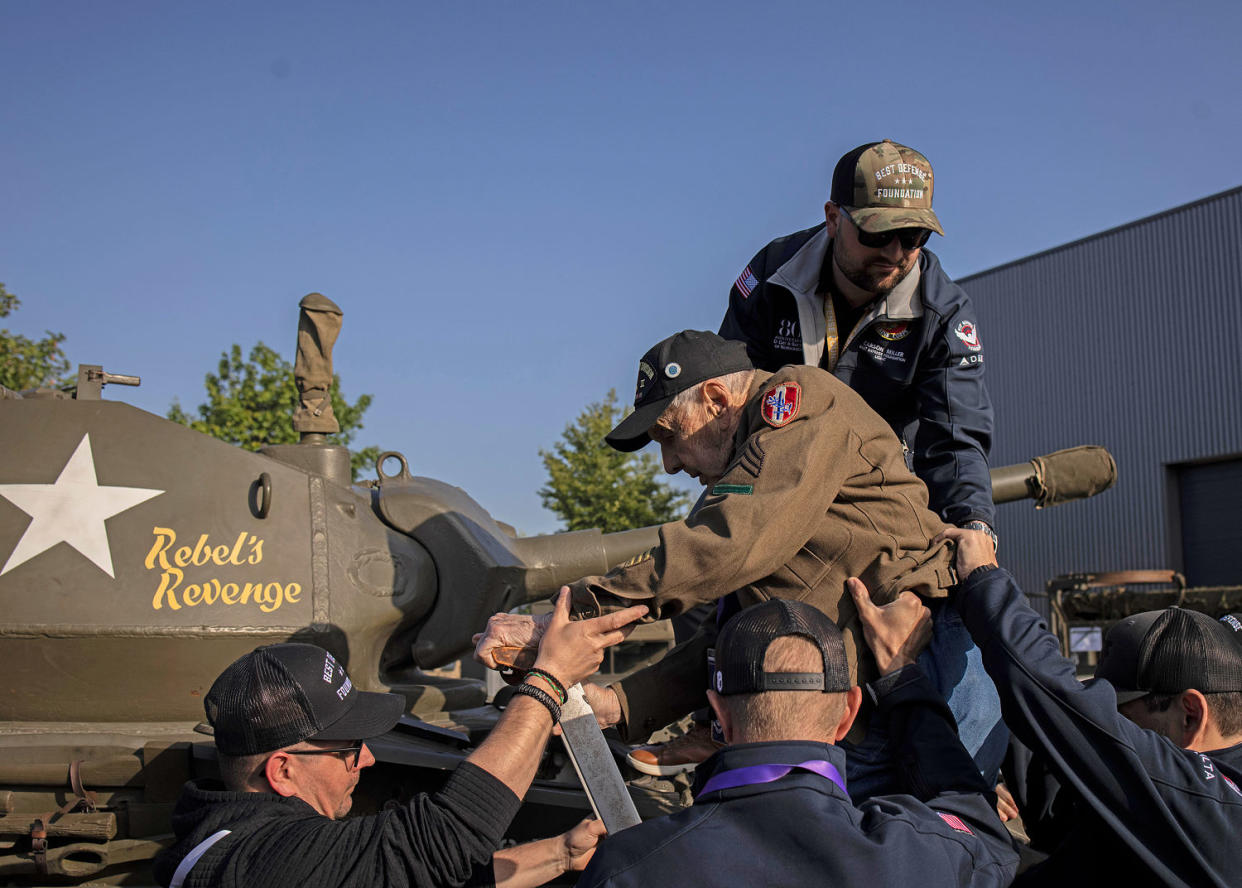
As the sun was setting the evening of D-Day, these veterans gathered for a dinner just 200 yards from the Maisy Battery, a network of tunnels and bunkers from which the Nazis fired at the men now dining over the road.
It was an event that provided a moment of levity in an often somber week.
The event was held at an auction house specializing in the restoration of military equipment. After the meal, one of the veterans, George Reitmeier, 99, was given the chance to ride atop a restored and fully drivable M24 Chaffee tank.
“I felt like a kid again; it made me feel like a young boy,” Reitmeier, a former sergeant, said, his rheumy eyes gaining a fresh energy after clambering down from the rumbling war machine.
Born in Lackawanna, New York, he fought in the December 1944 Battle of the Bulge, but not before a German torpedo hit his troop ship as it attempted to cross the channel onto mainland Europe.
His first tank ride in 80 years was a reminder that although the veterans give much during these trips, it’s also heaps of fun for them.
“It’s like riding a bicycle,” he said of his 80-year break from handling battlefield matériel. “It has made my trip.”
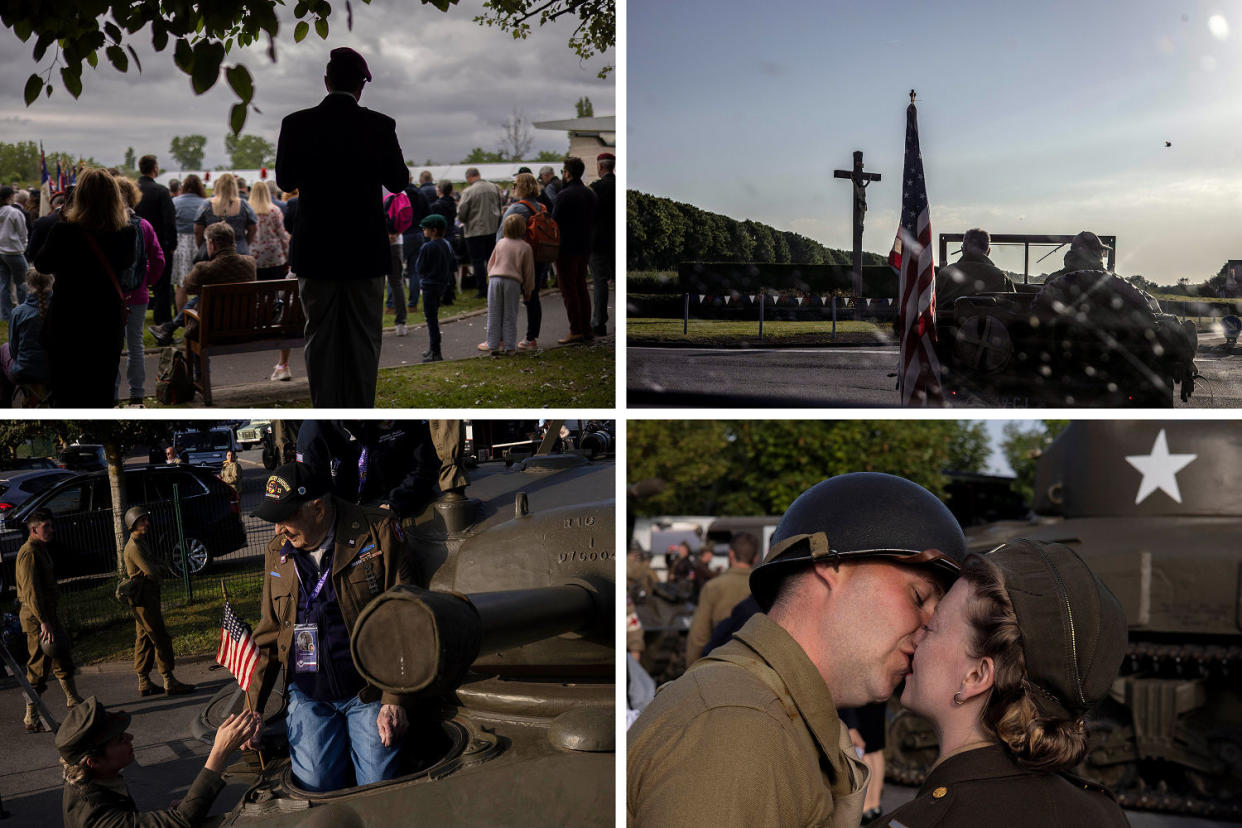
CORRECTION (June 6, 2024, 5:30 p.m. ET): A previous version of this article misstated the type of tank rode by Sgt. George Reitmeier. It was an M24 Chaffee, not an M4 Sherman.
